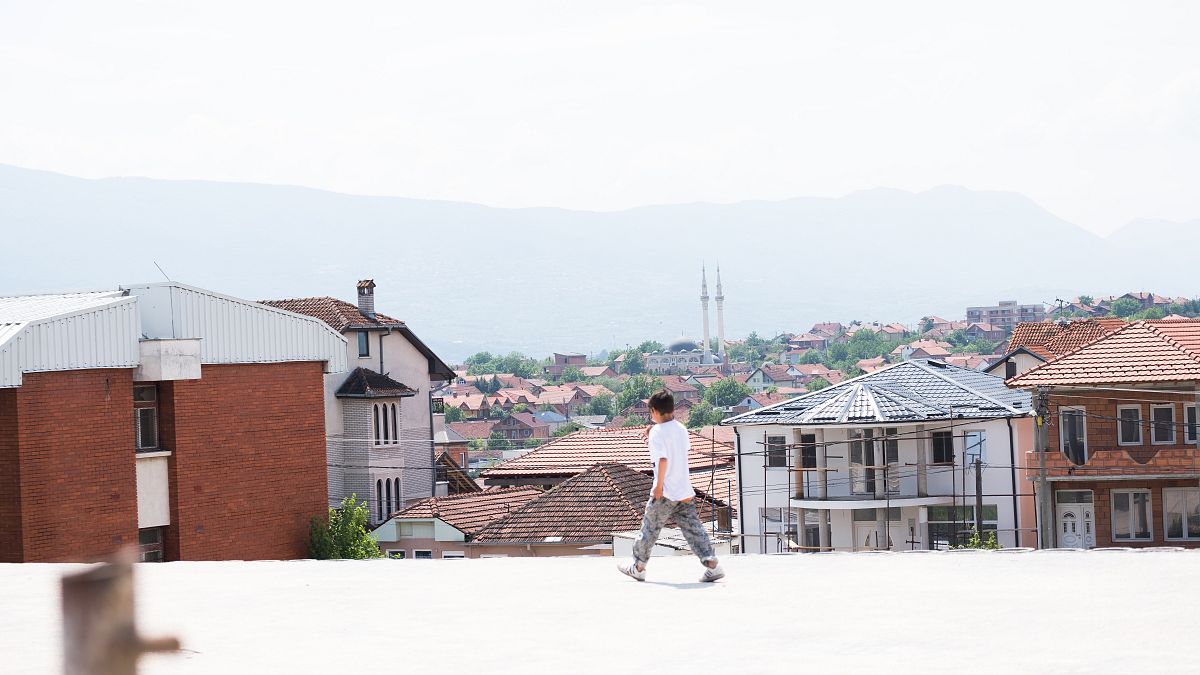The current Macedonian government, in power since May 2017, has committed to paying more attention to the needs of Roma — but mutual suspicion remains.
“Shutka? I have been there only once, looking for a shawl. I got one for just two euros, can you imagine?” says Filipa, 20, puffing on a cigarette.
“By the way, beware of pickpockets once you are there.”
Filipa’s experience in the district of Šuto Orizari, known by locals as Shutka, is typical of the response you will get from many long-term residents of Skopje, capital of the Former Yugoslav Republic of Macedonia.
Šuto Orizari is possibly unique in Europe as a district run by members of the Roma community, but to most Macedonians, it’s known mainly for its market. And a reputation for crime.
Šuto Orizari’s recent history starts in 1963, when an earthquake destroyed swathes of Skopje and forced many residents to resettle. The Roma community was dislodged from the Topaana neighbourhood where they traditionally lived. A plan to assimilate local populations by allocating homes in newly-built blocks of flats was proposed by the local authorities until a backlash from ethnic Albanians and Slavic Macedonians prompted a rethink.
Instead, the Roma were directed to a barren zone on the outskirts of the city and Šuto Orizari was born.
In 1996 the neighbourhood was officially recognised as one of the 10 municipalities that form the city of Skopje, thus becoming the first municipality in Europe where the Romani is the official language, together with Macedonian. A 2002 census identified 80% of the population as Roma.
Arriving in Šuto Orizari, travellers are greeted by blue-green flags marked by an irradiating Indian chakra, a symbol of the people’s migration from the sub-continent. Streets also testify to the epic journey undertaken by the Roma people around a thousand years ago when they spread across Europe — a voyage depicted in the French lyric movie Latcho Drom (“Have a safe journey”); Indira Gandhi Street, named after the first Indian president that acknowledged a shared heritage between Roma people and Indians; and Gvadalahara Street, dedicated to the Spanish city of Guadalajara. There's also Garsija Lorka Street, which pays homage to the Spanish author who chronicled Roma people's ordinary lives in many of his works, such as Romancero Gitano (1928).
Around the district, the celebrated bazaar, overloaded chariots, old-fashioned Mercedes and modern buses compete for space on one of Šuto Orizari's few tarmac roads.
Customers move frantically from one stall to another in search of bargains, while elders placidly sip Turkish coffee sitting on small chairs beside the street. The goods on sale range from clearly counterfeited clothing, sunglasses and sports equipment to homemade delicacies. Waiters in white shirts delivering coffee dodge between veiled women, sweets sellers, beggars and smiling bakers.
The future of the community is represented by toothless toddlers wearing creased T-shirts soiled with dust and fashionable teenagers, indistinguishable from those seen in any European city. Without them, the scene could easily be a fragment taken from Emir Kusturica’s Time of the Gypsies. It is no coincidence that the Serbian director's film was partly shot in Šuto Orizari.
Challenges in Shutka
Roma in FYROM live 10 years less than their fellow nationals. Their unemployment rate nationwide is around 53% and, according to a report by Open Society, only 11% of Macedonian Roma have received higher education, compared with an average of 60% among all citizens.
An additional challenge facing the community relates to identity cards. After the collapse of the Yugoslav Federation and the birth of the modern Macedonian state, many Roma citizens were not registered, thereby becoming invisible and citizens without rights inside the territory where they had lived for generations.
The current government, in power since May 2017, has committed to pay more attention to the needs of Roma, calling for their increased engagement in public life, but mutual suspicion remains.
The President of the City Council, Fatima Osmanovska, describes the vicious circle of poverty and low-quality welfare that has afflicted Shutka since its establishment. “Given that only a small amount of workers have regular contracts, few taxes are actually collected. This obliges the administration to rely almost entirely on the central government in economic terms," she said.
"Therefore, it is no surprise that here clientelism and corruption have gradually become common practice.”
The newly-elected local administration is nevertheless promising change.
"We plan to open cultural centres to spread awareness that the Roma identity and the multi-culturalism that marks our district represent a common heritage to preserve. Plus, we want to strengthen the connectivity between the bazaar and other parts of Skopje, as well as to improve the industrial fabric of our territory to create better job opportunities," said Osmanovska.
Down the road at one of the two elementary schools in the district, Alvin Salimovski is preparing his students to take on and defeat the prejudice that he has experienced and that they, too, will have to confront as they grow up.
With his well-kept beard, a love for metal music and a degree in German studies, the headmaster might not fit the stereotype often imposed on his people. But that was no protection from discrimination, he says.
"If you are Roma, you have to double your effort. You have to prove you are not backwards, demonstrate that you can actually make it."
But the community is putting its trust in the education system to break out of the cycle of unemployment and poverty, he says.
"Shutka's children are the same as elsewhere: they wish to fulfil their dreams."
